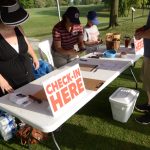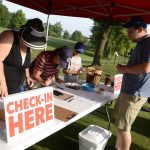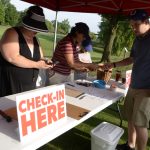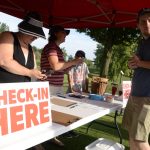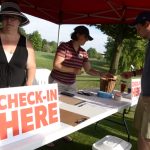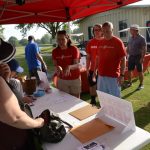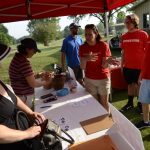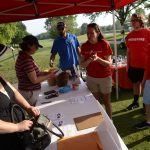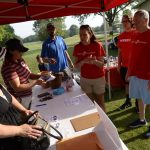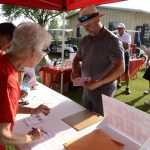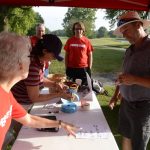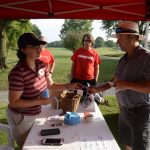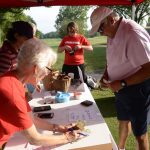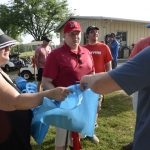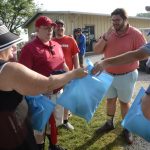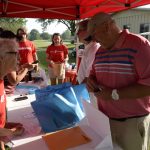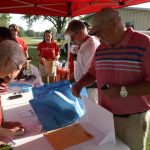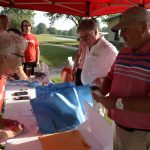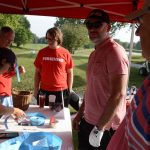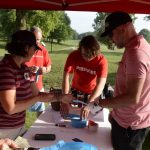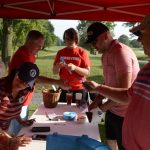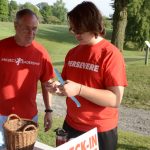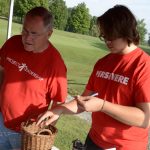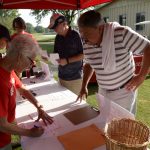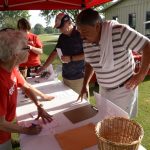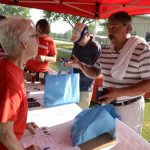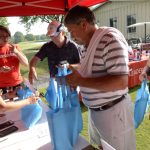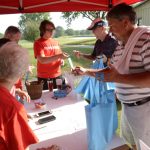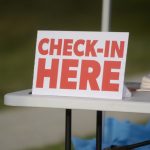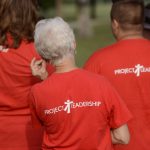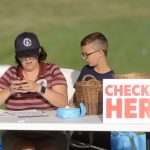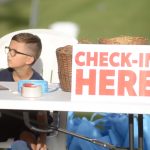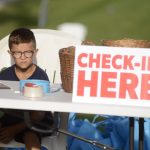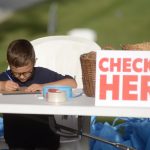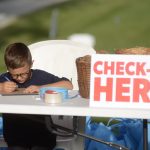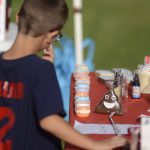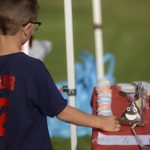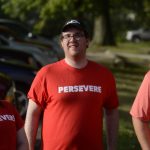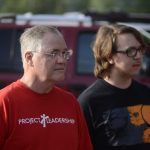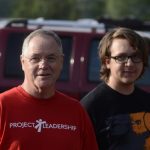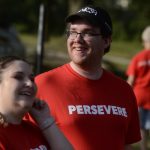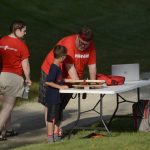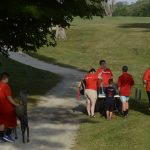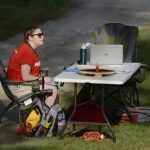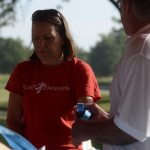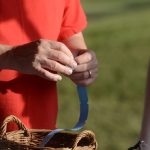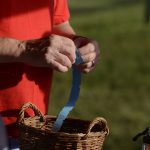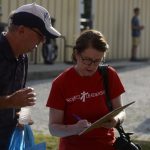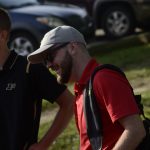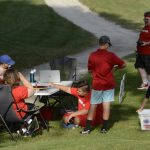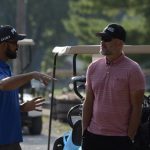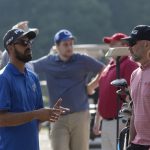HIGH SCHOOL STUDENTS TO DISCOVER LOCAL CAREERS AT INDUSTRY SHOWCASE
Learning about local industries and the paths that lead to careers in those fields will be the
focus of an event for Grant County high school students later this week.
The 2019 Grant County Industry Showcase will be held from 9 to 11:30 a.m. on Friday, April
26th at Ivy Tech, Marion and will focus on the business services, healthcare, and manufacturing &
logistics industries in the Grant County area. Approximately 225 juniors and seniors from
Eastbrook, Madison-Grant, Marion, Mississinewa and Oak Hill high schools will attend the event.
Students taking part in the Showcase will have the opportunity to connect directly with
employers and learn about Ivy Tech’s educational programs that can prepare them for Grant
County’s in-demand careers.
The Showcase is being coordinated by the Grant County Comprehensive Counseling
Coalition in partnership with Project Leadership, the Grant County Economic Growth Council, the
Marion-Grant County Chamber of Commerce and Ivy Tech Community College. The Coalition is a
collaborative effort of all five public school systems in Grant County and is focused on improving
college & career readiness and social & emotional well-being for students in grades K-12.
Employers taking part in the Showcase include: Walmart Distribution Center # 7055,
American Woodmark, Wiley Metal Fabrication, Marion General Hospital, Welch Packaging, Double
H Manufacturing, Via Credit Union, Heritage Pointe of Warren, Allstate-Taylor Family Insurance,
Carey Services, Paddock View Residential Center, Afena Federal Credit Union, Quality Care
Ambulance, Grant Blackford Mental Health, and Mutual Bank.
In advance of the Showcase, students who plan to attend are taking part in workshops to
learn about employment opportunities in Grant County and the industries featured at the
Showcase, and to prepare a resume that they can use when meeting with employers. Students will
also be receiving a “Grant County By Choice” t-shirt to wear to the event.
FOR MORE INFORMATION CALL: Kylie Jackson, Marion-Grant County Chamber of Commerce, 664-5107
Victoria Herring, Grant-County Economic Growth Council, 662-0650
Steve Gibson, Project Leadership, 651-0650
Nate McNeely, Marion Community Schools, 667-7875
Gwen Hodson, Madison-Grant United School Corp., 948-5132
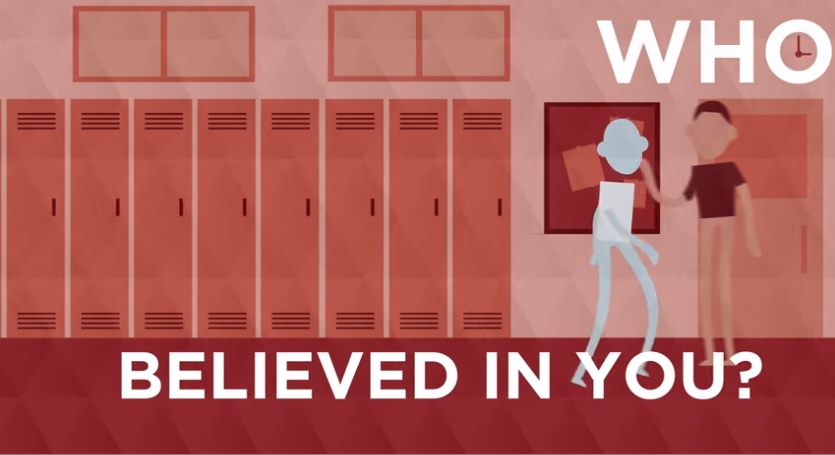
Make an Impact: Be a mentor
The above video is produced by Mentoring.org, a national organization promoting local mentoring organizations like Project Leadership.
Project Leadership paves the way to and through college for local youth. We use the word ‘college’ as shorthand, a concise way to describe the options students have for training beyond high school; formally described as ‘post-secondary education’. Whatever you call it, we know that training beyond high school opens up many doors for success.
One of the ways Project Leadership ‘paves the way to college’ is our high school mentoring program. The mentoring program matches one community volunteer with one high school student. Most students are matched in their freshman year of high school. Community volunteers are asked to give one hour each week during the school year, and to make a year commitment.
What does it take to be a mentor for Project Leadership?
- A desire to impact students lives in a positive way.
- Commitment to meeting with a student weekly. Especially as a mentor relationship is beginning, it is essential to the mentor relationship that the adult be dependable.
- All mentors must pass an extensive background check as a safety measure.
Would you consider making an impact in a student’s life? As you consider, click here to learn more about the 6 qualities of a successful mentor.
Apply today to be a mentor in the Fall 2016 school year. Begin your impact today!

Snow and success.
Seth Godin’s tag line is “GO Make something happen.” He writes quick, short blog posts that encourage his readers to take action, which you can see in the post copied below.
Godin’s recent post relates to Project Leadership, I think. Read it below.
It’s not a problem if you prepare for it
Buffalo famously gets a lot of snow. Growing up there, though, no one really freaked out about it, because we had machines to get rid of it and the attitude that it was hardly a problem worth hyperventilating over.
Most problems are like that. When we prepare for them and get used to them, they’re not problems anymore. They’re merely the way it is. – Seth Godin
Godin’s post gets me wondering: How do we prevent problems?
Can this idea of preparation preventing problems be true?
Like Godin, my dad has experienced some winters in Buffalo, NY. In middle school, my dad moved there from Indianapolis. Dad always tells the story of first shoveling the sidewalk after moving to Buffalo. The neighbor yelled over to him, “Throw it further. Otherwise, you won’t be able to get through by the end of the winter.” My dad still chuckles at the warning, 50+ years later.
My dad wasn’t used to shoveling in Buffalo. In Indianapolis, a foot of snow is uncommon. Often, the snow melts between snowstorms. But not in Buffalo. The neighbor’s help allowed my dad to be prepared for something he didn’t know to prepare for himself.
In addition to preparation, you also need knowledge. You can’t prepare for something you don’t know or can’t anticipate.
So, what do snow storms in Buffalo have to do with Project Leadership?
When you think about preparing for college, if you come from a family where no one has gone to college then you may not ‘know how far to throw the snow,’ if you know what I mean. Like my dad, without the perspective that experience brings, some students aren’t prepared for the ‘storms’ that college and college preparation will throw at them.
Project Leadership mentors understand many of the snowstorms of college. Because of that, our mentors help their mentees prepare for the ‘snowstorms’ they don’t know are coming. By walking alongside their mentees, PL mentors help students prepare for their futures. Mentors may be able to help predict problems before they arise and identify the right tools and solutions. No mentor can prevent the storms, but they can help find the right tools to weather the storms that come up in the pursuit of their college and career goals.
Do you agree with Mr. Godin? Do you have an example of a problem you’ve prevented by preparing? Share your thoughts on Project Leadership’s Facebook page.
Would you like help preparing the Free Application for Student Aid (FAFSA) forms?
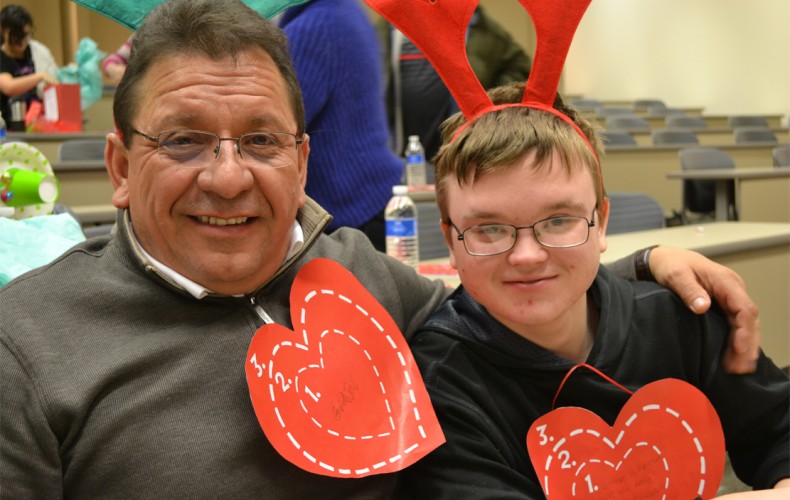
How do you celebrate Thank Your Mentor Day?
As a highlight of National Mentoring Month 2016, Thank Your Mentor Day™ is celebrated January 21. Many Americans will reach out to thank or honor those individuals who encouraged and guided them, and had a lasting, positive impact on their lives. These are simple ways you can thank your mentor:
- Contact your mentor directly to express your appreciation.
- Express your gratitude on social media.
- Pass on what you received by becoming a mentor to a young person in your community.
- Make a financial contribution in your mentor’s honor.
- Write a tribute to your mentor for posting on the Project Leadership blog. Send to Sue at sgodfrey@projectleadership.org.
*Thank Your Mentor Day™ is an initiative of the Harvard T.H. Chan School of Public Health. From National Mentoring Month.org.

First Day Hikes celebrate the New Year!
Do you make a new year’s resolution? The #1 resolution made is to lose weight, with getting healthy as #5.
It’s safe to say improving health is on our mind at the New Year!
First Day Hikes are a way to get a jump start on your resolutions – enjoy the outdoors with your family and your mentor/mentee!
All Indiana state parks offer free guided hikes and refreshments! The First Day Hike offerings nearby are:
- Mississinewa: 7:30 pm. Owl hike! Meet at Miami Recreation Area’s Bostwick Pond. A 1 mile hike, will last approximately 45 minutes. S’mores and hot drinks around the campfire afterwards.
- Mounds: 6:00 pm – Luminary First Day Hikes. A 45-minute ½ mile hike departing from the Nature Center. Stroll along an easy illuminated trail to the Great Mound. Hot beverages provided.
- Salamonie: 2 p.m. Salamonie River State Forest. Meet at Salamonie River State Forest, Hominy Ridge parking lot. Stroll through the historical efforts of the CCC and enjoy winter’s wonder. I mile trail.
- Summit Lake: 9:00 am. Meet at the trail head adjacent to the beach parking lot.Hike trail 3 with the property manager, exploring Summit’s winter wonderland along the way.
Click on this link to take a look at the offerings all around the state.

Can an hour a week make a difference? Read Jacob’s story
Can one hour a week make a difference? Project Leadership asks volunteers to give one hour each week to mentor a student. One hour to listen. One hour to provide feedback and friendship. One hour of accountability. The hours add up, like grains of sand in an hourglass. While the individual hour might seem insignificant, each hour is a deposit toward a student’s future. The hours, when added together, make a significant impact. The hours add up to provide stability and perspective and hope. Read Jacob’s story, which is really Keith’s story, too. The Project Leadership team is cheering for Jacob. And thankful for Keith’s commitment to giving an hour a week. Thank you for making a difference!
As a ninth grade student at Muncie Southside High School, Jacob was matched with a Project Leadership mentor named Keith. The two of them have developed a strong relationship over the past four years. Jacob is now a freshman at Ball State studying Computer Science. He and Keith stay in touch and occasionally have lunch together on campus.
While Jacob graduated with a high GPA, his SAT scores were too low for him to be admitted to Ball State right away. He was put on the waiting list. Jacob and Keith discussed options, called Project Leadership for advice, and eventually put together a plan that would improve Jacob’s chances of acceptance. They also moved forward with alternatives in case that acceptance did not come through.
In the end, Jacob was able to attend Ball State and absolutely loves being there. He admits that he has struggled his first semester. It’s different from high school, he explains. “In high school you just had to do what was needed to get points. There was a lot of fluff – assignments, extra credit, and participation points – that allowed anyone who really wanted good grades to get them,” he says. “I didn’t need to do a lot of studying. In college, however, you have to have a deep and thorough understanding of the material. I’m just now figuring out how to do that. Professors care, but it’s up to the student to get the job done. It’s been stressful and a lot of work and not at all like they portray in the movies. I’ve wanted to quit, but I know I just have to keep working. I won’t earn the good grades I’m used to this semester, but I’m optimistic that next semester will be better.”
When talking about his mentor, Jacob explains that Keith doesn’t have all the answers and he doesn’t do the work for him, but the rock solid support he provides is invaluable. Keith had his own set of problems to overcome, but he went all the way and made something of himself, says Jacob. He says of his mentor: “He is a great person! He provided a straight line for me to follow and supported me when I needed it most. Having him come for lunch each week and being able to talk things over with him was the greatest thing for me!”
Would you like to impact a student like Jacob’s life? You, like Keith, can impact a student’s life. Get involved as a mentor– one hour each week can truly make a difference! Click here to learn more.
Give a gift of support to join Project Leadership in paving the way to and through college for students like Jacob. Click here for giving options.
Meet Randy – A Project Leadership Graduate
At Project Leadership, we enjoy walking side-by-side with high school students as they form and pursue their post-secondary dreams. For Marion native, Randy Sheron, that meant pursuing a Social Work degree at Ball State University after high school.
As a freshman 21st Century Scholar at Marion High School, Randy already knew that she wanted to go to college, but she also realized that it was going to take a lot of work. During her freshman year, her mom informed her about Project Leadership’s mentoring program, and asked her if it was something she would be interested in.
“After she explained to me that a mentor would be there to meet with me and help me out with school, I decided that I wanted to enter the program,” said Randy.
Randy was paired her freshman year with a mentor named Mishelle Wright. They were matched for all four years of high school, and developed a strong, trust-based relationship.
“Mishelle and I had a connection from the beginning. I was quiet and shy, and I felt like Mishelle understood because she was the same way. She made me feel comfortable. We would do a lot of different, fun things, like meet at Starbucks.”
Mishelle helped Randy keep her focus on future goals, and also helped her overcome obstacles along the way.
“Mishelle was what I would consider to be a perfect mentor. If she didn’t know the answer, she would always point me in the right direction. She was always there to encourage me, even during the hard times.”
Randy went on to graduate from Marion high school in 2012, and is now a student at Ball State University. To this day, she stays in contact with Mishelle. She is finishing up her senior year as a social work major, and decided to volunteer at Project Leadership to fulfill an academic requirement.
“Being in Project Leadership’s mentoring program was a very positive experience for me. I wanted more hands-on experience, and I felt like Project Leadership’s values aligned well with social work. It just made sense to volunteer here.”
We are happy to have you, Randy! Thank you for sharing your story with us!
If you would like to learn more about our mentoring program, click here.

Changes to FAFSA That Students & Guardians Need to Know
There are a few changes happening to the Free Application for Federal Student Aid, commonly referred to as the FAFSA. These changes will take effect over the course of 2016. Here we will briefly overview the FAFSA changes so that parents and students will know how changes may effect them going forward.
- Previous year’s tax data will now be accepted – Starting in October 2016, students will be able to file their FAFSA before the new year, using the tax data from that year, instead of estimating new tax data after January. This means colleges will be able to send out financial aid packages earlier. Furthermore, students and their parents will be less likely to make mistakes while estimating their tax information.
- Asset protection cut in half – Previously, the guardian’s savings and investment funds were not counted against a student’s financial aid awards, as long as assets were less than $30,300. Now, that number has been cut in half, setting the bar for protected assets at $18,700. As a result, students may receive less financial aid if assets exceed that amount.
- Schools can no longer see the other schools that a student has listed – Schools will now objectively issue financial aid packages, without knowing which other schools a student may be considering. In the past, schools could see how a student listed prospective colleges on the FAFSA, the first school usually being the most preferred, but now schools will not see such information. As a result, the college/university cannot use it as an advantage to decipher the likelihood of a student attending their school. However, state agencies can still see such information, so FAFSA filers may want to list a state college first to increase the chances of the student receiving state aid.
Source: U.S. News

Six Qualities of Successful Mentors
Project Leadership matches community mentors with a 21st Century Scholar in their freshman year of high school or college. Community volunteers are asked to commit an hour each week for one year. The one-year commitment allows for enough time to develop a relationship and have a positive impact on a student. However, it is not uncommon for mentor-mentee relationships to grow beyond one year; many mentors walk with students through their high school career and beyond.
Through our years of managing mentor relationships, Project Leadership has learned the qualities that successful mentors share. The following information from MENTOR/National Mentoring Partnership show the top six qualities of successful mentors.
1) Personal commitment to be involved with another person for an extended time — generally, one year at minimum. Mentors have a genuine desire to be part of other people’s lives, to help them with tough decisions and to see them become the best they can be. They have to be invested in the mentoring relationship long enough to make a difference.
2) Respect for individuals and for their abilities and their right to make their
own choices in life. Mentors should not approach the mentee with the attitude that their own ways are better or that participants need to be rescued. Mentors who convey a sense of respect and equal dignity in the relationship win the trust of their mentees and the privilege of being advisors to them.
3) Ability to listen and to accept different points of view. Most people can find someone who will give advice or express opinions. It’s much harder to find someone who will suspend his or her own judgment and really listen. Mentors often help simply by listening, asking thoughtful questions and giving mentees an opportunity to explore their own thoughts with a minimum of interference. When people feel accepted, they are more likely to ask for and respond to good ideas.
4) Ability to empathize with another person’s struggles. Effective mentors can feel with people without feeling pity for them. Even without having had the same life experiences, they can empathize with their mentee’s feelings and personal problems.
5) Ability to see solutions and opportunities as well as barriers. Effective mentors balance a realistic respect for the real and serious problems faced by their mentees with optimism about finding equally realistic solutions. They are able to make sense of a seeming jumble of issues and point out sensible alternatives.
6) Flexibility and openness. Effective mentors recognize that relationships take time to develop and that communication is a two-way street. They are willing to take time to get to know their mentees, to learn new things that are important to their mentees (music, styles, philosophies, etc.), and even to be changed by their relationship.
As you read the qualities of a successful mentor, do you see yourself as possessing the qualities of a successful mentor? Please join Project Leadership to improve our community through mentoring. Apply online today at projectleadership.org/apply.

